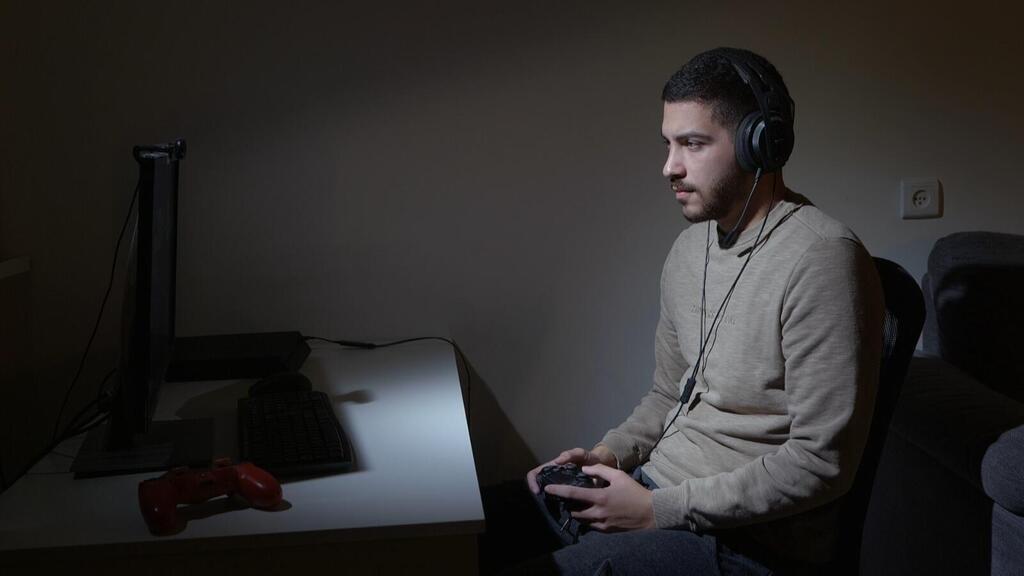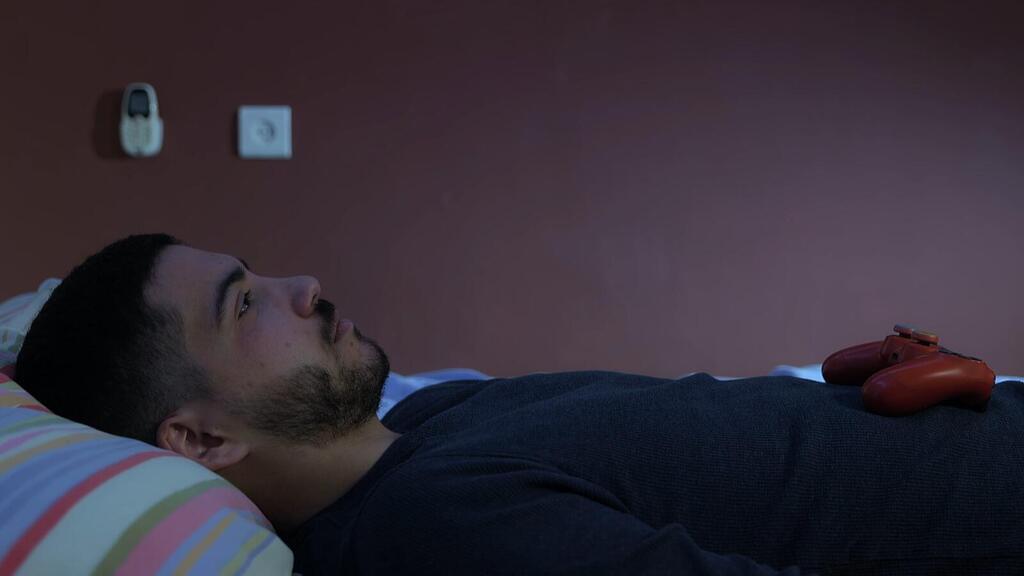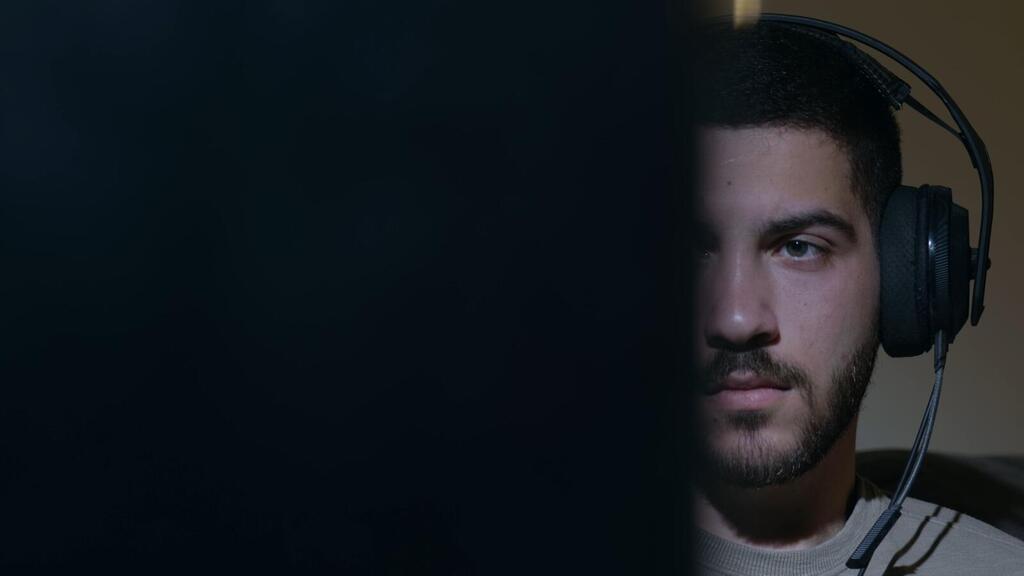Getting your Trinity Audio player ready...
"Until I was 17, I was addicted to screens, completely dependent on them," shares Yoad Cahal, 22, from Haifa. "When I got home from high school, I would immediately lock myself in my room with the computer. I didn’t want to go outside or meet friends. The screen had so much to offer.
"It was easier for me to experience life through the screen than in the real world. In reality, my grades dropped, I became socially disconnected and my health deteriorated. I barely ate. I would skip meals to spend more time on the computer, not even wanting to lose a few minutes heating food in the microwave. It was a time of losing weight, friends and grades."
When did the addiction start?
"Screens were always part of my life. As early as third or fourth grade, I had a cellphone with games. Later, those games were replaced by social media apps. At 14 or 15, I asked for a PlayStation as a birthday gift, and I got it. That’s when my time in front of the computer became more intense and serious.
"At first, it was a social activity—I’d go to friends’ houses and play with them. Then I started downloading games so I could play at home. Eventually, it became the first thing I did when I got home. I even started looking for ways to shorten the trip back from school. I’d turn down offers to hang out with friends just to get to the computer. Then came the stage where I’d leave school early to play. The more the addiction grew, the less time I spent outside the game."
"I would spend endless time on social media, scrolling and scrolling until I ended up looking at completely random things. When you’re uncomfortable with your body, your social situation or your grades—and I never liked structured environments—it’s easier to escape. But my main addiction was to computer games like Fortnite and FIFA, where I could live the lives of characters I wished were mine instead of my own.
"After several years of this, around the age of 17, I started realizing something was wrong. I could feel how much I was suffering, not just mentally but physically—I had eye strain and headaches. I would literally collapse into bed when the pain of being in front of the screen became too much. But the next day, I’d be right back at the computer, skipping school to sit in front of the screen. From the moment I opened my eyes until I went to sleep, I lived in the virtual world. On peak days, I spent 12 hours on the computer.
"And even when you’re not at the computer, you’re constantly thinking about it. At school, I’d sketch out what I’d do when I got back to the computer, obsessing over it, and I couldn’t relax until I was back in front of the screen."
What was your relationship with your parents like?
"My parents are divorced. My mom worked two or three jobs at the time and would come home late. Even though she was busy, she always cared for me—she’d make sure I had food and ask how I was feeling. Still, years later, she told me, ‘As a parent, it’s convenient when your child has something to do. Sometimes, you just need your peace.’ Because the process was gradual, it took time before they raised a red flag.
"At first, they tried to punish me and take away the screen, but it didn’t change how I felt. Today, as someone who helps parents with children struggling with screen addiction, I try to explain that the screen itself isn’t the problem. If you try to suddenly separate a child from their screen, they’ll react defensively, seeing it as their best friend, and turn against the parent. The result will be the opposite of what you want."
How did you eventually break free from it?
"My parents noticed how bad things had gotten. They were very communicative and tried to reach out to me, making it clear they were there for me. My dad started coming over twice a week to spend time with me and my sister. Each time, he’d suggest going out or doing something together. The most I could offer was to let him take a controller and play with me on the computer. He never stopped suggesting, never gave up, even though I kept refusing. In a way, he kept giving me the choice, and eventually, the ‘no’ turned into a ‘yes.’
"When I started feeling terrible about my situation, I opened the door they left for me. I went out for coffee with my dad, sat on the balcony with my mom. People don’t realize that the best replacement for a screen is human connection.
"Around the age of 17, I became fully aware of my situation. For months, I couldn’t even touch the computer—it disgusted me because I realized it was making me hate myself. I suddenly wanted to cut back, do something else, breathe, go outside. I gradually reduced my screen time with that awareness. In my free time, I started going to cafes with my dad or hanging out with friends. My dad, who’s a business consultant, began teaching me things you don’t learn in school, and I found them fascinating.
Get the Ynetnews app on your smartphone: Google Play: https://bit.ly/4eJ37pE | Apple App Store: https://bit.ly/3ZL7iNv
"I eventually returned to the screen, but this time as a tool—to learn, grow and find things to help me develop. By the time I turned 18, I was ‘clean.’ After what I went through, I realized this is a problem many kids face. I wanted to help others in the position I was once in. I turned my struggle into a business, creating a program for parents called Connecting to Reality, with online content available to help families."
What can you say to parents, from the perspective of someone who has experienced this?
"It’s less about how much time the child spends on the screen and more about how they behave when they’re not on it. If they’re restless and uneasy when disconnected, that’s the real sign. Many kids are drawn to screens because they’re bored and looking for easy, accessible stimulation—just like many adults. A child’s dependence shows when they’re agitated and struggle with even small activities, like going to school or taking a family trip, because they’re away from the screen.
"Parents think the screen is the problem, but it’s not—it’s a symptom. Some kids smoke or drink, and those behaviors are also symptoms of something deeper. Don’t be angry at your child for reaching this point—approach them with empathy."
Looking back, what led to your screen addiction?
"The need for control over my life. As a kid, your parents tell you what to do, your teachers tell you what to do and sometimes even your friends. I didn’t get along with structured environments and rigid rules—I couldn’t find logic in them. But on the computer, it was different because I set the rules. On the computer, you have a whole world you shape, define, and control according to your desires. It made more sense to keep living there.
"Today, I mainly use screens for work. They’ve become a tool, not a dependency. I don’t spend hours scrolling, and I carefully control the content and people I choose to follow. I seek content that provides value."
What would you say to a child struggling to let go of the screen?
"I understand them. They feel like everyone is mad at them because of this addiction, and they feel guilty. It’s important to remove that guilt from them. When someone feels guilty, it’s impossible to influence them."




